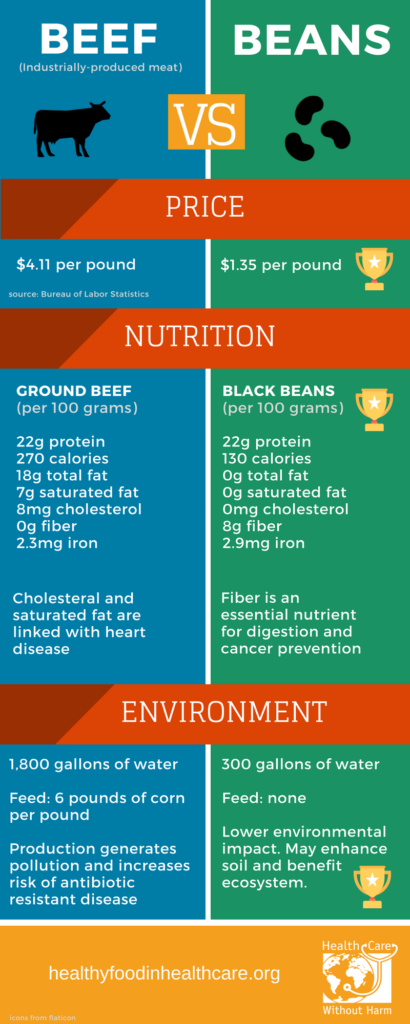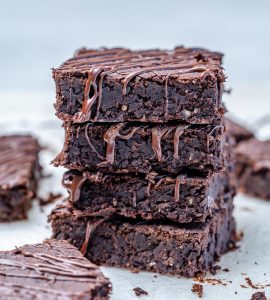Peas On Earth: How Pulses Heal Our Bodies & Our Planet
This Earth Day 2024, as part of our partnership with the United Nations Beans Is How campaign, Food and Climate Alliance, and Seed Programs International, we’re scaling up our celebration of the incredible power of pulses for both personal and planetary health.
Actually, technically, we’re celebrating the legendary benefits of legumes.
While people often use the words “legumes,” “pulses,” and “beans” interchangeably (at A Well-Fed World, we tend to use “pulses” as shorthand for all things beany), technically these terms have different and distinct meanings. Check out our new blog post providing some of the name nuances.
Leggo My Legumes!
It’s less important what we call them, however, and far more important that we eat them.
If food is medicine, then beans are practically a miracle drug. Packed with protein, iron, and zinc, fiber, folate, and potassium, legumes are naturally low in saturated fat and sodium, and free of cholesterol. Not only do they confer a host of protective and preventative heart benefits, but doctors say eating pulses every day can actually help treat heart disease and related conditions.
According to doctors at Harvard University, “Scientific studies have definitively linked a diet high in legumes with a lower risk of developing obesity, diabetes, high blood pressure, high cholesterol, heart disease, or strokes. As a matter of fact, eating legumes every day can effectively treat these diseases in people who already have them.”
Meanwhile, Dr. Michael Greger of NutritionFacts.org has urged that “the intake of legumes—beans, chickpeas, split peas, and lentils—may be the single most important dietary predictor of a long lifespan.”
Here’s what he has to say about why you should aim for three servings a day:
 “The most comprehensive analysis of diet and cancer ever performed was published by the American Institute for Cancer Research. Sifting through some half a million studies, nine independent research teams from around the globe created a landmark scientific consensus report reviewed by 21 of the top cancer researchers in the world. One of their summary cancer-prevention recommendations is to eat whole grains and/or legumes (beans, split peas, chickpeas, or lentils) with every meal. Not every week or every day. Every meal.
“The most comprehensive analysis of diet and cancer ever performed was published by the American Institute for Cancer Research. Sifting through some half a million studies, nine independent research teams from around the globe created a landmark scientific consensus report reviewed by 21 of the top cancer researchers in the world. One of their summary cancer-prevention recommendations is to eat whole grains and/or legumes (beans, split peas, chickpeas, or lentils) with every meal. Not every week or every day. Every meal.
Legume consumption is associated with a slimmer waist and lower blood pressure, and randomized trials have shown it may match or beat out calorie cutting for slimming tummy fat as well as improving the regulation of blood sugar, insulin levels, and cholesterol. Beans are packed with fiber, folate, and phytates, which may help reduce the risk of stroke, depression, and colon cancer. The phytoestrogens in soy in particular appear to both help prevent breast cancer and improve breast cancer survival. No wonder the cancer guidelines suggest you should try to fit beans into your meals—and it’s so easy! They can be added to nearly any meal, easily incorporated into snack times, or served as the star attraction. The possibilities are endless.”

To Your Health— and the Planet’s!
The nutritional benefits of pulses are rivaled only by their environmental benefits. Legumes are one of the most planet-friendly foods on earth. They can be grown on so-called marginal land in inhospitable conditions; they are extremely water efficient, often grown as rainfed crops without irrigation; and they regenerate soil, improving soil formation and biodiversity, and promoting higher rates of soil carbon sequestration. Many varieties are drought resistant and extremely climate-resilient.
A 2017 study found that if people in the U.S. substituted beans for beef, we would achieve a whopping 50-75% of needed greenhouse gas reductions, even without reducing emissions from fossil fuels. Such a switch would also free up 42% of U.S. cropland currently under cultivation— more than 400 million square acres, which is roughly 1.6 times the size of California.
Additionally, legumes’ ability to fix nitrogen means they decrease or eliminate the need for synthetic fertilizers. A recent study found that adding legumes to traditional crop rotations such as wheat and barley reduced the need for nitrogen fertilizer by almost half, while still yielding the same amount of food. They also increase soil microbe diversity, reducing weed, insect and disease pressures, and thus reducing the use of pesticides.
The United Nations Food & Agriculture Organization (FAO) calls legumes a “climate smart” food as they both adapt to climate change and contribute toward mitigating its effects.
Indeed, because of their affordability, accessibility, diverse cultural relevance, and nutritional and environmental benefits, experts are now calling legumes the best food to most effectively address the double crises of climate change and global food insecurity.
Bean Me Up!
While it may sound like a lot, eating three servings of legumes a day is actually quite easy—and delicious! And prep time needn’t be a hassle; if you’re short on time, it turns out canned beans are just about as nutritious as beans cooked from dried form. Draining and rinsing the beans reduces sodium by about half, but also washes away some of the nutrition. So if you’re going for canned, it’s best to look for “low sodium” or “no salt added” on the label, and skip the bean bath.
In terms of getting those three servings in, a serving is defined as a quarter cup of hummus or bean dip; a half cup of cooked beans, split peas, lentils, tofu, or tempeh; or a full cup of fresh peas or sprouted lentils.

Who doesn’t like a mid-day snack of hummus and pita, or a late-night nosh of chips and dip? Beans can even be the secret star in dessert! You read that right: home cooks positively rave about flourless vegan black bean brownies. Try this popular recipe from Chocolate Covered Katie, or this one from Clean Food Crush. This 5 ingredient vegan black bean chocolate pudding also gets glowing reviews. Who knew?
It’s also easy (and filling) to add beans to soups, salads, salsas, pasta and rice dishes, burgers, vegan meat loaf, and so much more.
Check out the mouthwatering, whole-food, bean-based recipes at NutritionFacts.org, and, as a special Earth Day gift from vegan chef Ellen Kanner and our partners at Beans Is How, download the free e-cookbook Beans: A Handful of Magic – Vegan Recipes From Over the World.

